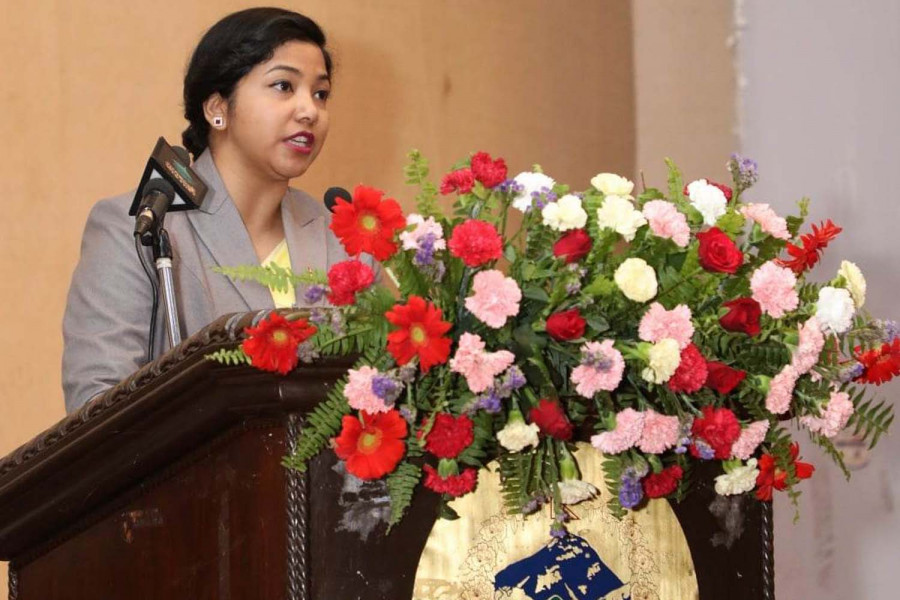Columns
Assessing local government budget
Local governments have prioritised education, health, agriculture, livestock and roads.
Khim Lal Devkota
Nepal's metropolises, sub-metropolises and municipalities are required to present their budgets to their respective assemblies by June 25 every year, according to the provisions of the Local Government Operation Act and Inter-Governmental Fiscal Arrangement Act. These local governments have to provide detailed information about the revenue and expenditure of the previous fiscal year, revised income and expenditure for the current fiscal year, income and expenditure projections, and programmes and projects for the upcoming fiscal year. But 42 local governments have missed the deadline to present their annual financial plans, as per information provided by the local government associations.
Such failures have become a recurring phenomenon at some local levels, but it appears that the concerned authorities are not serious about identifying and addressing the underlying problem. As most representatives come from political parties, they do not show much concern towards this issue. When the budget is not passed on time, it hampers local economic activities, and as a consequence, people are unable to receive services as expected. Local employment and income are significantly affected, ultimately impacting the overall economic growth of the country.
Challenging task
Addressing all the issues related to the programmes and budgets is a challenging task. Based on six years of implementation experience at the local level, several problems can be pointed out. Despite these challenges, the local governments have presented their budgets.
They have allocated funds appropriately, prioritising sectors such as education, health, agriculture, livestock, roads, drinking water, cooperatives and irrigation. Notable transformations have occurred in the physical, social and economic sectors. Small-scale industries and businesses have thrived in both rural and urban areas. For instance, Dharan Municipality has announced the operation of turmeric and soap factories.
To address disparity between sons and daughters, the local units have incentivised parents to adopt family planning after the birth of a daughter. They provide insurance in the name of daughters and promote marriages with a 20-year age gap. Such programmes have been initiated at many local levels.
Several local levels have implemented higher education programmes for girls and women. To reduce domestic violence, they have distributed liquor cards and decreed that liquor stores must not remain open after 7 pm. They have also provided annual financial support to parents caring for individuals with disabilities, and imposed minimal taxes on factories and businesses operated by disabled persons.
In remote areas, local governments have launched campaigns to distribute social security allowances to households. During the Covid-19 outbreak, they performed exceptionally well in distributing relief by going door to door to ensure citizens' safety.
Local governments have paid special attention to marginalised ethnic communities like Kusunda and Raute. Scholarships and free education programmes have been provided to their children, including opportunities for higher education. Programmes aimed at improving social and economic conditions, such as eliminating untouchability, providing free education to marginalised Dalit communities, and promoting the concept of one household, one profession, one school, one garden, one pond and one playground have been implemented.
Raksirang Rural Municipality in Makwanpur district has announced gifting homes to people migrating from other areas. This programme marks a significant and ambitious milestone in the history of local governments in Nepal.
Kathmandu Metropolitan City has earmarked Rs100 million for the operation of a city hospital dedicated to providing healthcare for children. Lalitpur Metropolitan City has carried out a subsidy programme for those purchasing electric vehicles.
Biratnagar Metropolitan City has launched a programme to clean the tyres of public vehicles before they enter the city, prohibited the use of plastic bags, penalised littering, improved roads and operated mobile toilets. Bharatpur Metropolitan City has set a target to attract 200,000 foreign tourists during Bharatpur Visit Year 2024. The city has also started a programme to establish one model school in each ward. It has also consistently provided subsidies to dairy farmers at the rate of Rs3 per litre of milk.
Kathmandu Metropolitan City has the highest budget of Rs25.54 billion while Birgunj has the lowest budget of Rs3.21 billion.
Significant improvements have been made in the teaching and learning activities of community schools. To discourage the migration of students from government schools to private English-medium schools, some local governments have implemented English-medium education in community schools. Incentive programmes like scholarships, free uniforms and midday meals have been implemented to encourage students from marginalised communities, including Dalits and indigenous groups, to attend school.
Some local governments have provided free ambulance services for home healthcare services by employing doctors and nurses, establishing vocational training centres in all wards, and introducing services like zero home delivery. Additionally, support has been provided for activities such as preventing loss of fertile land, promoting organic farming, providing vision, supporting farmers through agricultural inputs, and providing subsidies for milk production, vegetable and fruit farming, fish farming, and processing.
Pork barrel funds
Local governments with a low revenue base are facing challenges. More than two-thirds of their revenue come from federal grants. However, the allocation for fiscal equalisation grants has decreased by Rs13 billion compared to the previous year.
The more local governments invest in their revenue sources, the more their fiscal activities will grow. Along with the growth in fiscal activities, there will be changes in the entire economy, including employment generation. It is necessary to take this aspect seriously at the local level.
Just as the federal and provincial budgets allocate funds for constituency infrastructure development programmes, many local levels have allocated significant amounts of money in the names of the mayor, deputy mayor, chairman and deputy chairman. This practice of allocating pork barrel funds existed in the past. But this time, their justification is that if the federal and provincial governments can allocate funds in the name of parliamentarians, they can do the same. This reasoning is flawed because two wrongs do not make a right. A government that is closely connected to the people should set a good example instead of promoting unethical practices.




 13.12°C Kathmandu
13.12°C Kathmandu















